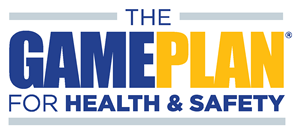
Drinking an adequate amount of water is something you should pay attention to all the time, but in the hot summer sun it becomes a serious risk factor.
When performing physical activity for long hours, playing outdoors, or doing yard work for an extended period ‐ one of the most important things you need to consider ESPECIALLY during the hot summer months is staying hydrated and taking breaks in a shaded area.
Tips to stay hydrated in the summer months:
The best time to consume fluids is before you are thirsty. Consider putting yourself on a water schedule, because when you become thirsty it means your body is already dehydrated. *You can make or purchase water bottles that have lines on it with the times of day to drink as a reminder.
Avoid drinks containing caffeine or alcohol while in the sun or heat. These types of drinks promote dehydration. If you do consume caffeine you need to increase your water consumption even more. If you are drinking alcohol in the heat, you should drink a bottle of water for every drink you have.
Take frequent breaks in a shaded area to cool down, which will give you the perfect opportunity to drink fluids and eat healthy snacks to replace lost minerals.
Be sure to wear the right attire to stay cool: lightweight and light‐colored clothing. A hat will protect the head and face from the sun.
An easy way to check dehydration is in your urine color. When our bodies sense low water storage, the kidneys will begin to conserve water instead of excreting it, which results in darker colored urine. A normal urine color is very pale yellow. The more yellow your urine, the more fluids you need to drink.
Freeze water bottles overnight to take to work with you the next day, so your water stays chilled.
IMPORTANT FACTS TO KNOW
Signs of Heat Exhaustion:
- Cool, moist, pale, flushed or red skin
- Increased sweating
- Tiredness
- Headaches
- Fainting, nausea or vomiting
- Fast, shallow breath, dizziness
- Muscle cramps, weakness
- Rapid pulse
Signs of Heat Stroke:
- Very high body temperature
- Rapid pulse
- Shallow breathing
- Hot, red, dry skin
- Confusion
- Throbbing headache
- Nausea
- Failure to sweat
- Unconsciousness
- Seizures
Additional American Heart Association Recommendations:
To make sure that you are adequately hydrated, weigh yourself first thing in the morning after using the bathroom. If you are 2 pounds less than normal, you are likely dehydrated and you should rehydrate yourself by drinking plenty of water, especially if you are doing anything physical.
If the temperature is above 70 degrees outside, your chance of dehydration is greater than if it is cooler. To stay hydrated, sip water frequently, and be sure to drink before, during, and after any activity.
